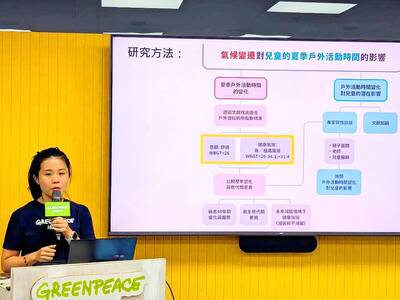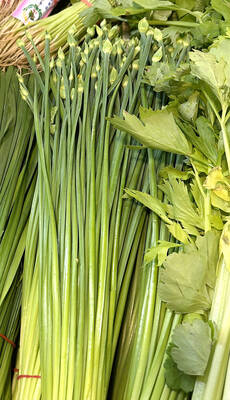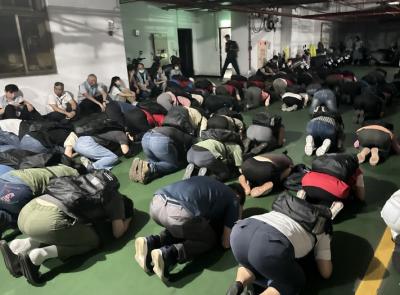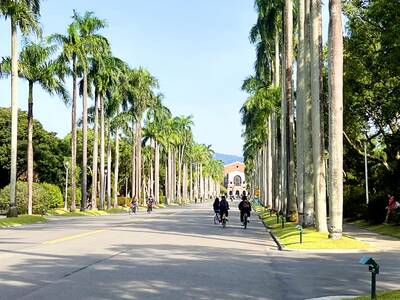Government agencies are upgrading their Web sites to integrate online social networking sites such as Plurk, Facebook and Twitter to enhance communication with the online community and facilitate information distribution.
Officials from the Environmental Protection Administration (EPA) yesterday unveiled a new information site (epa.gov.tw/edw) that has consolidated environmental information, databases and statistics from central and local government Web sites.
“The information was previously spread across a lot of places, making it hard to find,” said Chu Yu-chi (朱雨其), director-general of the Environmental Monitoring and Information Management unit. “By consolidating and presenting it in a more user-friendly interface, users can learn more easily about their surrounding environment.”
Chu said the information in the Web site was integrated with social networking sites to enable users to easily share the information.
This is on top of a Plurk site set up last month by the Department of Health to gather public opinion and quell concerns about the government’s easing of the ban on imports of US bone-in beef.
However, the site became the target of a series of online protests after reports that user suggestions had been deleted. DOH officials said they were deleted only after the suggestions had been recorded.
Chu said the public forums in the EPA Web site were not subject to censure, and users can feel free to talk about environmental subjects which officials would take note of and record.
Research, Development and Evaluation Commission officials responsible for maintaining gov.tw — the government’s Internet portal — said there was no consolidated approach or funding to upgrading government Web sites; instead, decisions were made by individual agencies.
However, most agencies regularly update their sites to ensure easier access for users, they said.
Chu said other agencies — including the Central Weather Bureau — may soon follow suit.
Last year US-based Brown University ranked Taiwan second in its annual e-government survey, next to the South Korean government. The study praised government Web sites for offering comprehensive online publications and policies and for including foreign language options.

The government should improve children’s outdoor spaces and accelerate carbon reduction programs, as the risk of heat-related injury due to high summer temperatures rises each year, Greenpeace told a news conference yesterday. Greenpeace examined summer temperatures in Taipei, New Taipei City, Taoyuan, Hsinchu City, Taichung, Tainan and Kaohsiung to determine the effects of high temperatures and climate change on children’s outdoor activities, citing data garnered by China Medical University, which defines a wet-bulb globe temperature (WBGT) of 29°C or higher as posing the risk of heat-related injury. According to the Central Weather Administration, WBGT, commonly referred to as the heat index, estimates

The Taipei Department of Health’s latest inspection of fresh fruit and vegetables sold in local markets revealed a 25 percent failure rate, with most contraventions involving excessive pesticide residues, while two durians were also found to contain heavy metal cadmium at levels exceeding safety limits. Health Food and Drug Division Director Lin Kuan-chen (林冠蓁) yesterday said the agency routinely conducts inspections of fresh produce sold at traditional markets, supermarkets, hypermarkets, retail outlets and restaurants, testing for pesticide residues and other harmful substances. In its most recent inspection, conducted in May, the department randomly collected 52 samples from various locations, with testing showing

Taipei and other northern cities are to host air-raid drills from 1:30pm to 2pm tomorrow as part of urban resilience drills held alongside the Han Kuang exercises, Taiwan’s largest annual military exercises. Taipei, New Taipei City, Keelung, Taoyuan, Yilan County, Hsinchu City and Hsinchu County are to hold the annual Wanan air defense exercise tomorrow, following similar drills held in central and southern Taiwan yesterday and today respectively. The Taipei Mass Rapid Transit (MRT) and Maokong Gondola are to run as usual, although stations and passenger parking lots would have an “entry only, no exit” policy once air raid sirens sound, Taipei

Taipei placed 14th in the Quacquarelli Symonds (QS) Best Student Cities 2026 list, its highest ever, according to results released yesterday. With an overall score of 89.1, the city climbed 12 places from the previous year, surpassing its previous best ranking of 17th in 2019. Taipei is “one of Asia’s leading higher-education hubs,” with strong employer activity scores and students “enjoying their experience of the city and often keen to stay after graduation,” a QS staff writer said. In addition to Taipei, Hsinchu (71st), Tainan (92nd), Taichung (113th) and Taoyuan (130th) also made QS’ list of the top 150 student cities. Hsinchu showed the